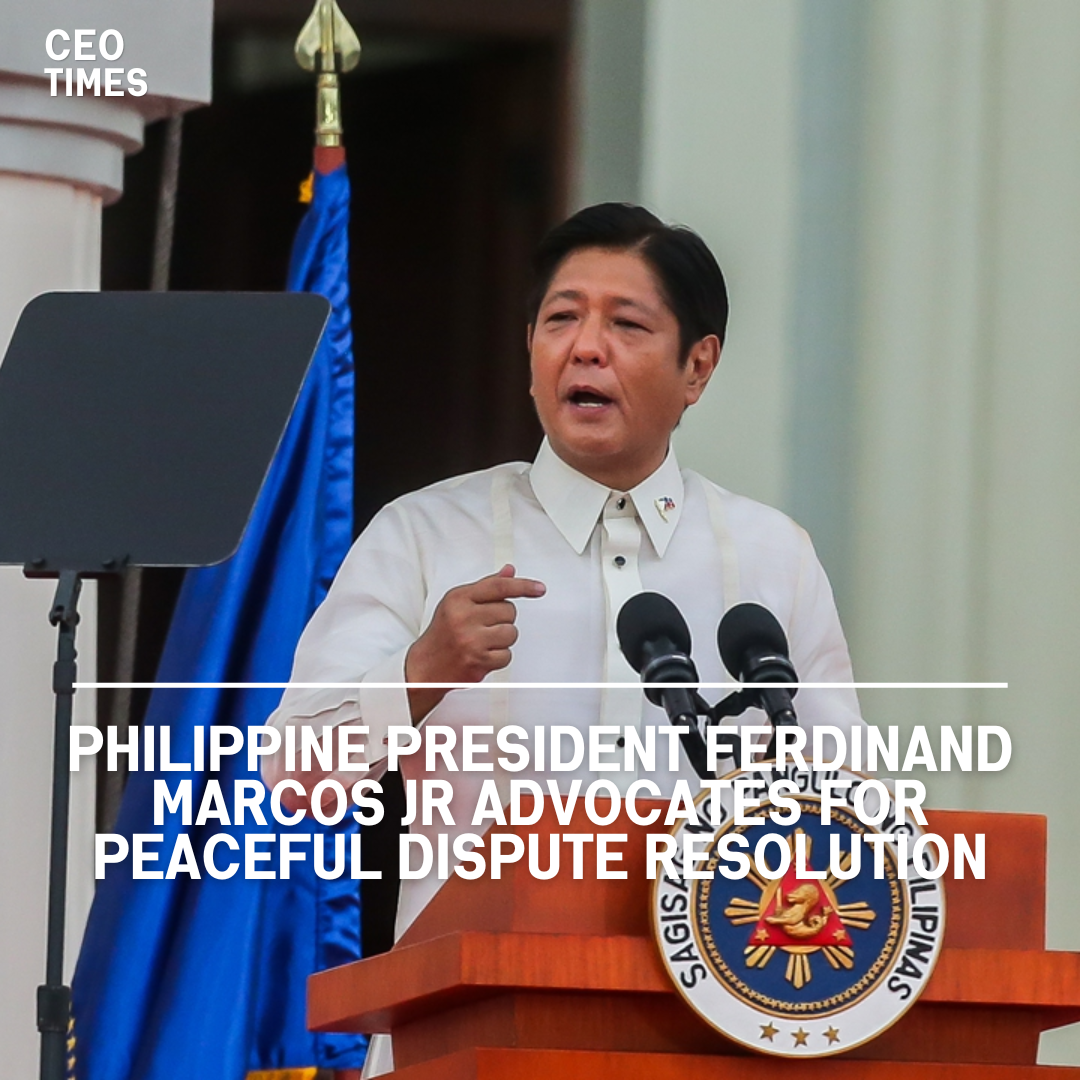Philippine President Ferdinand Marcos Jr. emphasized his country’s dedication to peaceful dispute resolution in the face of escalating maritime confrontations with China.
Speaking to the Western Command unit responsible for overseeing the South China Sea, Marcos underscored that the Philippines is not interested in instigating wars.
“In defending the nation, we stay true to our Filipino nature and would like to settle all these issues peacefully,” Marcos stated.
Recent Maritime Clashes:
During a routine resupply mission, the president’s remarks followed a recent clash between Philippine Navy personnel and the Chinese coast guard.
The Philippine military reported that a sailor was severely injured, and vessels were damaged during the incident. According to the military, Chinese Coast Guard personnel armed with knives and spears looted firearms and deliberately damaged Philippine boats.
China’s foreign ministry disputed this account, claiming the measures taken were lawful, professional, and beyond reproach.
Commendation for Troops:
Marcos commended the Filipino troops for their restraint in the face of provocation, reaffirming the country’s commitment to exercising its freedoms and rights by international law.
“In performing our duties, we will not resort to the use of force or intimidation or deliberately inflict injury or harm to anyone,” he said. “We stand firm. Our calm and peaceful disposition should not be mistaken for acquiescence.”
Strategic Implications:
The recent run-ins between China and the Philippines highlight the strategic tensions in the South China Sea, a potential flashpoint between Washington and Beijing.
The United States, a treaty ally of the Philippines, has condemned China’s actions and reaffirmed its defense commitments under their mutual defense treaty. Despite this, the Philippines indicated no current reason to invoke the treaty, as China’s actions do not qualify as an “armed attack.”
The South China Sea Dispute:
China claims almost the entire South China Sea, an area critical for over $3 trillion in annual shipborne commerce. Its claims overlap with those of the Philippines, Vietnam, Indonesia, Malaysia, and Brunei. In 2016, the Permanent Court of Arbitration in The Hague ruled that China’s claims had no legal basis, a decision Beijing rejected.
“We are not in the business of instigating wars – our great ambition is to provide a peaceful and prosperous life for every Filipino,” Marcos declared. “We refuse to play by the rules that force us to choose sides in a great power competition.”
Marcos’s comments highlight the Philippines’ ongoing efforts to navigate the complex geopolitical landscape of the South China Sea, striving for peaceful coexistence and resolution despite ongoing tensions.



















